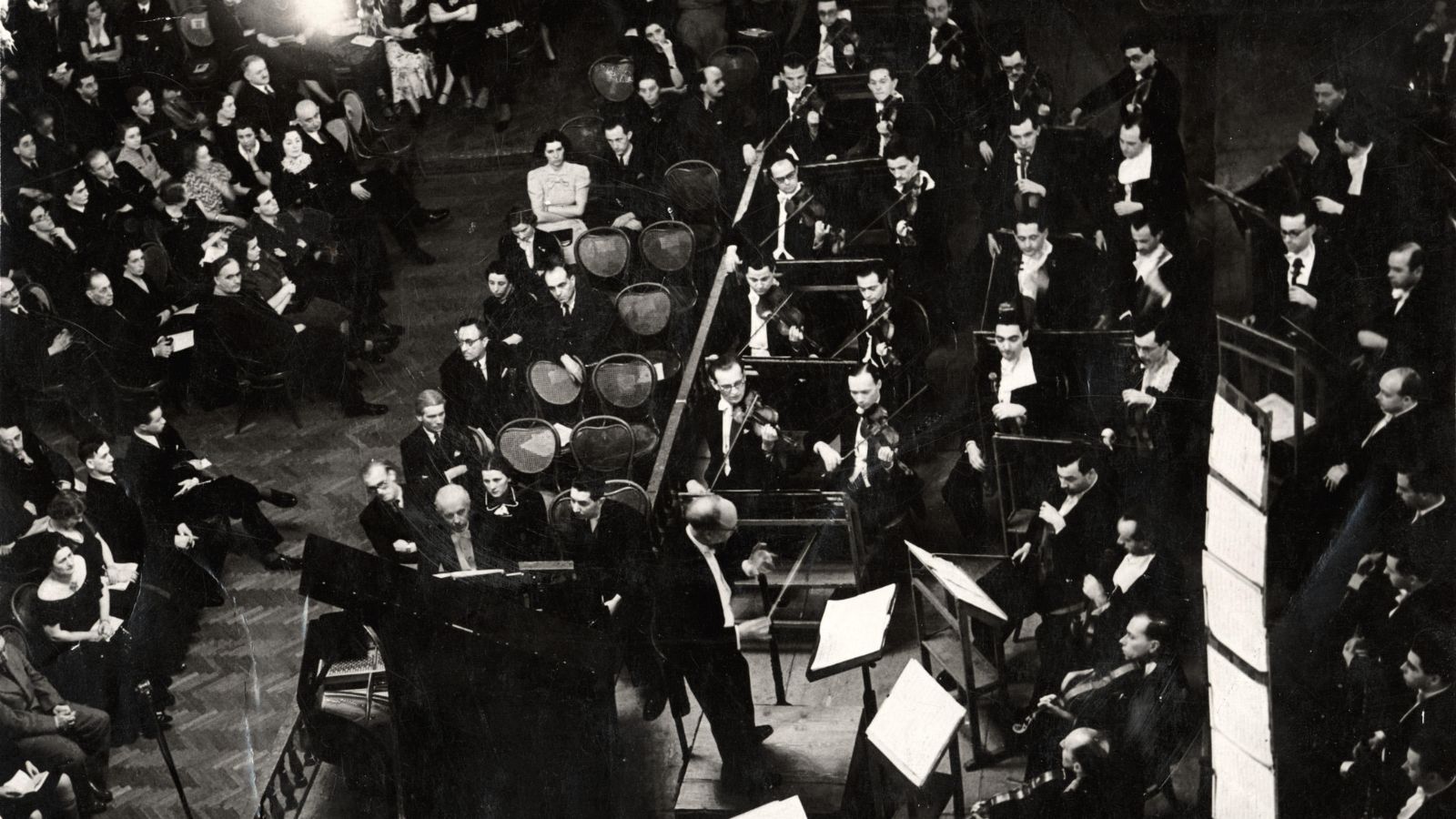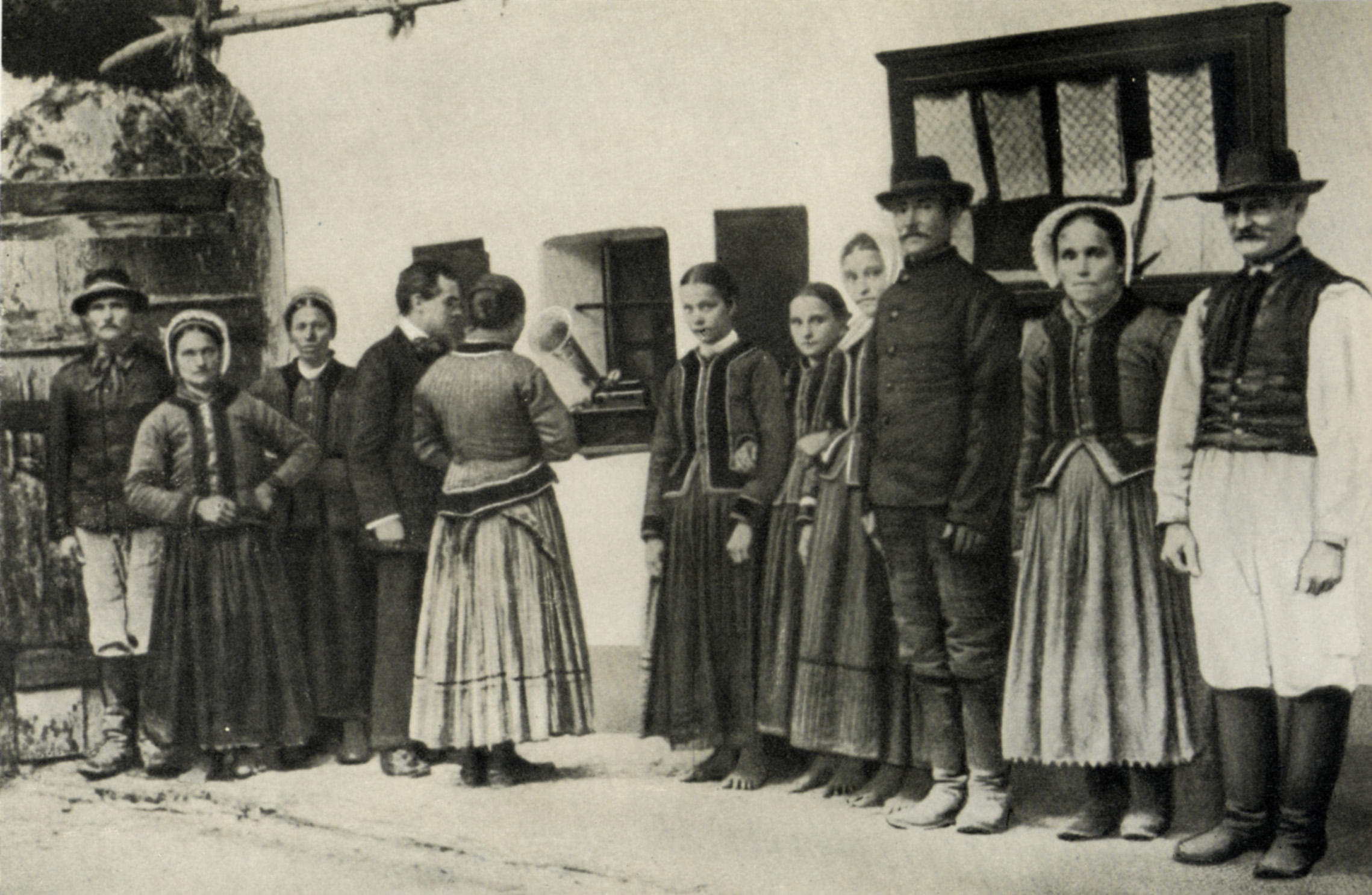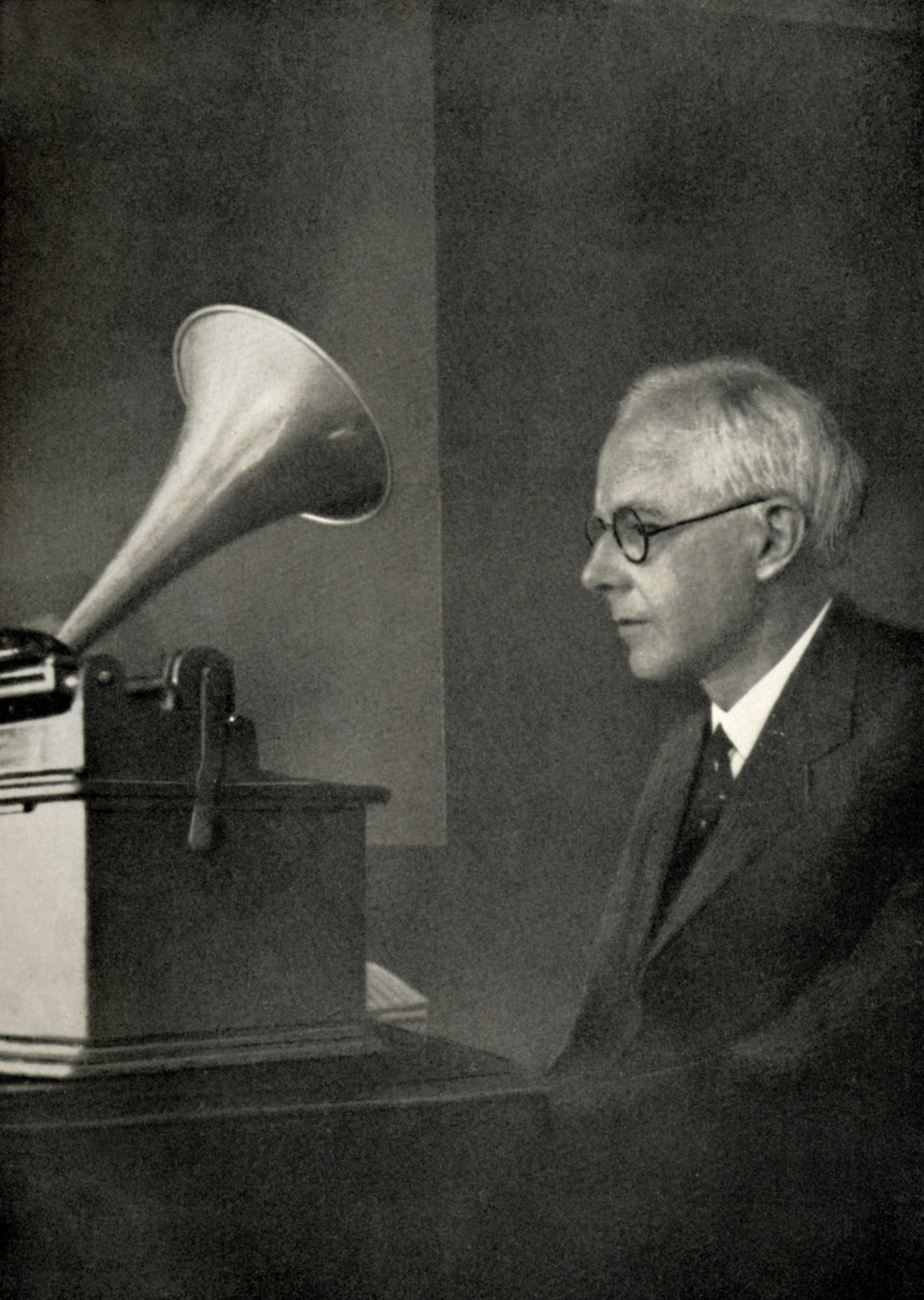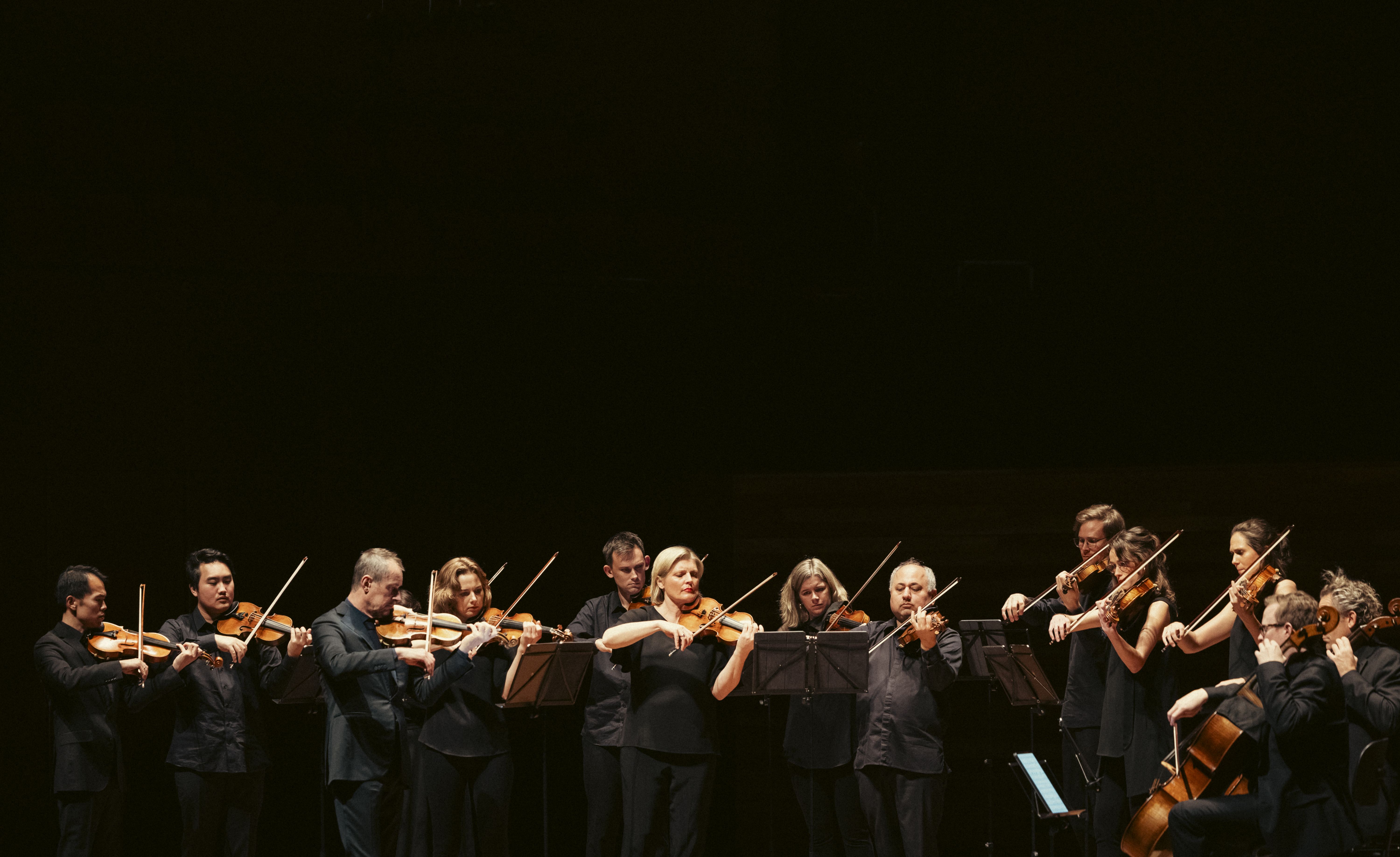
Written by Alison Croggon.
Alison Croggon is arts editor of The Saturday Paper and an award-winning poet, novelist, librettist and critic. Her most recent book, a translation of Rainer Maria Rilke's Duino Elegies, was shortlisted for the Translation Prize in this year's NSW Premier's Literary Awards.
In 1961, Pierre Boulez named the “great five” composers of 20th -century music – or rather, as the mischievous musicologist Richard Taruskin put it, made a list of composers whose music Boulez “did not mind conducting” – Igor Stravinsky, Arnold Schoenberg, Alban Berg, Anton Webern and Béla Bartók.Of all these names, the Hungarian composer Bartók has the most vexed reputation. Taruskin claims that Bartók is “indispensable” – but, as he points out, his work is also the source of endless arguments. Both during his life and after his death, Bartók was doomed to be a misfit.
His life – and his reputation – was shaped by huge historical forces. Born in Hungary in 1881, Bartók lived through a tumultuous period of European history, dying in exile in America on September 26, 1945, three weeks after the end of World War II. It seems that almost everywhere he turns up – whether it’s his objection to being left out of the Nazis’ 1938 exhibition of degenerate music, Entartete Musik, or in the abstruse Stalinist arguments about whether his music was too Modernist and bourgeois for communism – Bartók is an anomaly. He sensed this inability to fit in as early as 1905, at the age of 24, when he wrote to his mother Paula: “I know it, I can foretell it: this intellectual loneliness will be my fate.”
In the pantheon of Modernism, Bartók’s passion for folk music was a point of dismissal. Taruskin describes this attitude well: The rich white men who wield political power in America are always warning against the “special interests”, by which they mean the interests of anyone who is not rich, not white, or not male. The equivalent in music is the notion that there is a classical “mainstream”, outside of which we are dealing with various regionalisms or folk traditions, representing a less fully developed humanity. “Once,” Leoš Janáček recalled, “an educated German said to me: ‘What, you grow out of folk song? That is a sign of a lack of culture!’ ... I turned away and let the German be.” Or to recall [Stravinsky’s] silly condescension toward Bartók: “I never could share his lifelong gusto for his native folklore. This devotion was certainly real and touching, but I couldn’t help regretting it in the great musician.”
Despite these dismissals, Bartók is popularly lumped with Modernist composers such as Schoenberg, who inaugurated the enormously influential 12-tone technique, also known as serialism, that dominated much of 20th-century music. As with much Modernist art, this music is often considered “difficult” – one composer I know, who loved it himself, described as “plinkety plonk music”. Rightly or not, it’s often considered to be a music that values intellectuality more than feeling.

A modernist with stubborn humanity
This is never true of Bartók. Modernism is certainly at the heart of his work: but he brings to its musical liberations a core of stubborn humanity, a melodic sense that refuses the chilliness of mathematical composition. If you listen to any of Bartók’s music, from the charming Romanian Folk Dances to the String Quartet No.5, which features in the Australian Chamber Orchestra's Dvořák's Serenade tour, you can sense his democratic ear. Bartók saw no difference between “high” and “low” in his musical aspirations. Present in even his most complex work is a strong sense of lived spiritual life. What drove this was his lifelong obsession with folk music.
Bartók was notable in many ways. As well as a composer, he was a feted musician and a teacher who wrote pedagogical works for piano and violin. In a fond remembrance, the renowned Hungarian pianist Andor Foldes remembers him as a “a slim little man with burning blue eyes”. “The primary and most important role of a teacher is to inspire,” Foldes wrote of Bartók. “I have never met anybody who could be more inspiring than Bela Bartók. Even the most brilliant words and fascinating theories mean nothing if they are not backed by strong personal convictions and an unwavering moral strength. It is not so much what Bartok said as a teacher – it is what he stood for as a human being that served as a guiding light to me.
Crucially, before the term was even invented, Bartók was an ethnomusicologist – he is often called “the father of ethnomusicology”. He was the first person to take folk music seriously as an academic discipline. For Bartók, the turn towards the indigenous folk traditions of his homeland was profoundly political.
Bartók was born into a Hungary torn by the failure of the War of Independence against the Austro-Hungarian Empire in 1849. The Hapsburg dynasty had straddled Eastern Europe as the dominant power for centuries, and after the attempted revolution Austria tightened its stranglehold on Hungary with increasing repressions, which led to an increasingly radical nationalism. The young Bartók was an ardent nationalist: he wrote to his mother, “We are sinning, all the time, in everyday life, in every small matter against the Hungarian nation, because we don’t care whether somebody speaks Hungarian; neither does it matter how he uses our only and beautiful language ... For my part, I shall pursue one objective all my life, in every sphere and in every way: the good of Hungary and the Hungarian nation.”
Modernism is certainly at the heart of his work: but he brings to its musical liberations a core of stubborn humanity, a melodic sense that refuses the chilliness of mathematical composition.

The key event in his intellectual life occurred in 1904 when he heard a young nanny, Lidi Dósa from Kibéd in Transylvania, sing Magyar folk songs to the children in her care. The mere existence of native Magyar traditions was a revelation. Hungarian peasant music was commonly supposed to be a derivation of Romani music. As Paul Griffiths says in The Master Musicians: Bartók: “Peasant music was not, as Liszt had supposed, a crude simplification of the flamboyant music of the gypsy bands. It was rather a natural indigenous culture, its freshness encapsulated in Lidi Dósa’s Dorian melody.” Bartók wrote afterwards to his sister: “I have now a new plan: I shall collect the most beautiful Hungarian folksongs and raise them to the level of art songs by providing them with the best possible piano accompaniment.”
Collecting and notating folk music
This began a lifelong project of collecting and notating folk music that led him far beyond the borders of Hungary, to Romania, Slovakia, Türkiye and North Africa. The books that resulted – a monograph on Hungarian folk music and another on Serbo Croatian folk songs – are still considered classics on the subjects. Importantly, these travels opened up Bartók’s nationalism to a kind of humanistic internationalism. He discovered relationships between Magyar musical traditions and others across Central Asia, Anatolia and Siberia – notably the use of the pentatonic (five note) scale – that precluded the notion of an ethnocentric nationalism based on 19th-century political borders. He also noted that ordinary people weren’t particularly interested in hostilities against other nations, that national aggression was always driven by the ruling classes. He said he had never found a folk song that expressed hatred towards another nation.
This study of folk music profoundly influenced Bartók’s compositions. Musicologist Judit Frigyesi says that one of the most important aspects of his aesthetic was a “dual conception of the artwork’s ‘spirit’”. “As Bartók understood it, the artwork was to express a communal spirit (the spirit of folk music) and yet arise from the inner urge of the artist to express his emotions. ‘Spirit’ was something beyond the material of music; in the case of folk music, it expressed the totality of lived experience.”
As Bartók himself wrote in 1928:
It was of the utmost consequence to us that we had to do our collecting of folk songs ourselves, and did not make the acquaintance of our melodic material in written or printed collections. The melodies of a written or printed collection are in essence dead materials. It is true though – provided they are reliable – that they acquaint one with the melodies, yet one absolutely cannot penetrate into the real, throbbing life of this music by means of them. In order to really feel the vitality of this music, one must, so to speak, have lived it – and this is only possible when one comes to know it through direct contact with the peasants. I should, in fact, stress one point: in our case it was not a question of merely taking unique melodies in any way whatsoever, and then incorporating them – or fragments of them – in our works, there to develop them according to the traditionally established custom. This would have been mere craftsmanship, and could have led to no new and unified style. What we had to do was to grasp the spirit of this hitherto unknown music and to make this spirit (difficult to describe in words) the basis of our works.
Bartók never joined any party. This, however, didn’t mean that he was apolitical. He stubbornly pursued an individualistic vision of a spiritual commonality, of which he considered folk music the lived expression. This bears some similarity to the indigenous aesthetic of Mexican Modernist artists such as Frida Kahlo and Diego Rivera an ocean away in South America. Although, unlike Bartók, Kahlo and Rivera were communists, they too emerged in the aftermath of a revolution against a repressive dictator and their work drew on indigenous traditions to express the dignity and beauty of ordinary lives, asserting their significance against the abstracted brutality of colonial power.
One thing that is very clear is Bartók’s anti-fascism. He loathed the Nazis and he was tormented by his own country’s increasing collaboration with the Third Reich. As Otto Deri wrote in Bela Bartók: A Portrait of His Personality Drawn from His Letters, Bartók observed the rise of fascism in 1930s Europe with profound alarm. In 1937 he refused to visit Italy. “My hatred for Italy has been so intense of late that I am simply unable to set foot on the soil of that country,” he wrote in a letter to a friend. “This might seem to be an exaggerated viewpoint, but I would like not to be disturbed, at least during my vacation, by Italian aggressiveness. I was told, however, that the Nazi poison has already penetrated into Austria, but at least there it is not so much in evidence.”
Bartók never joined any party. This, however, didn’t mean that he was apolitical. He stubbornly pursued an individualistic vision of a spiritual commonality, of which he considered folk music the lived expression.
A few weeks later in 1938 he wrote to another friend of “the immediate danger that Hungary will capitulate to that criminal regime”. “The question is only: When? How I could live and work (which amounts to the same) in such a country, I cannot imagine. My duty really would be to emigrate as long as it remained possible … Unfortunately, in Hungary almost every ‘Christian’ cultured individual is in sympathy with the Nazi system. I am really ashamed that by birth I belong to that class.”
Anti-Nazi sentiment from “one of the most outspoken men in the world”
At that time he received the “infamous questionnaires” from his German publishers, which had been “Nazified”, with all the previous management sacked. “They contained such questions as: ‘Are you German, or do you belong to related races, or are you non-Aryan?” Naturally neither [fellow composer] Kodály nor I will fill out these blanks. Our standpoint is that such questionnaires are illegal and lawless.” He banned performances of his work in Germany, and when the Nazis created their infamous exhibitions of “degenerate art” from 1937, he was – in stark contrast to Stravinsky, who objected to being included – indignant that his work had been left out.
Academic Abaigh McKee says that in 1938, Bartók joined a group of non-Jewish intellectuals who protested against the Hungarian government’s introduction of “Jewish laws”. The violist Dénes Koromzay, a member of the renowned Hungarian String Quartet, said that Bartók was “one of the most direct and outspoken men in the world” and “made such strong anti-Nazi statements that he would have been the first to be picked up by the Gestapo when they came, or even by the Hungarian Nazis when they eventually came into power”. By 1940, it was clear that Bartók could not remain in Hungary.
Exile and poverty
At the age of 60, he was forced to emigrate to America, swapping a life of privilege for one of exile and relative poverty. “There are three things I could not get used to,” he said in a letter six months after he arrived: “(1) to the ruminating people (every second person is chewing gum), (2) to the half-darkened railway coaches, and (3) to pay by cheque.” In the United States, he was known far better as a musician than as a composer, and his works were rarely performed. Bartók cobbled together a precarious living as a teacher and researcher before dying of leukaemia, after a lifetime of ill health, in 1945.
His posthumous reputation was as contradictory as his life. The Cold War, as Taruskin explains, was unkind to Bartók. “His work, which drew its authenticity in his own eyes from its dialectic of folklore and modernism, was ruthlessly partitioned, like Europe itself, into Eastern and Western zones.”
In Stalinist Russia and its satellites, which included Hungary, “bourgeois” Formalism – generally understood to be any kind of abstract Modernism – was ruthlessly excoriated. Among Stalin’s more famous victims are the poet Vladimir Mayakovsky, who suicided in 1930 after being persecuted by Soviet bureaucrats, and the theatre director Vsevolod Meyerhold, shot by authorities in 1940. In the endless declarations on what was proper social realist art, Bartók’s work was distorted – permitted for its folk music, which lauded the common people, but rendered deeply suspicious by its Modernist tendencies. In the end, even in Hungary, he was mostly set aside as too difficult.
He didn’t fare much better in the West. “The Western European avant-garde,” writes Taruskin, “made virtual fetishes out of the Third and Fourth Quartets, which they insisted on misreading as proto-serial, and accused the composer of the Concerto for Orchestra, to recall Rene Leibowitz’s chilling article, published by Jean-Paul Sartre in 1947, of ‘compromise’.
That may well rank as the greatest critical injustice ever visited upon a great artist.
He banned performances of his work in Germany, and when the Nazis created their infamous exhibitions of “degenerate art” from 1937, he was ... indignant that his work had been left out.
Moreover, as Taruskin argues, to ignore Bartók is to ignore the most humane artist of his time. “To leave Bartok out of the historical narrative means leaving out practically the only redeeming exception to the dismal saga of Modernist responses to barbarism … The figure of Bartók offers a rebuke – and following rebuke, a possible redemption – to the sad history whereby over the course of the 20th-century the autonomy of art has degenerated into irrelevance, and the disinterestedness of artists has degenerated into moral indifference.
As he foresaw in his early 20s, Bartók was condemned to be a misfit – too folksy for the avant-garde, too bourgeois for the communists, not bourgeois enough for the populists, too difficult for everybody. Yet when you return to his music, when you listen, you hear the work of a man who loved the humanity within which he always abided: a grace, a joy, a dignity, with an edge and intelligence that robs these other attributes of any possible sentimentality.
Dvořák's Serenade tours 4 - 19 August. Click here to discover the program and book tickets.
